Don't restore, create: Marina Stavniychuk on military courts in Ukraine
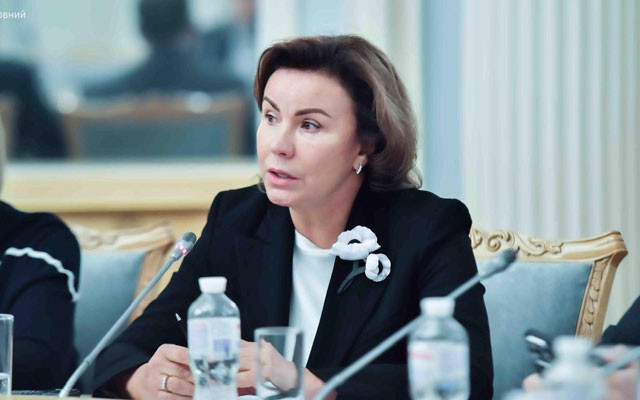
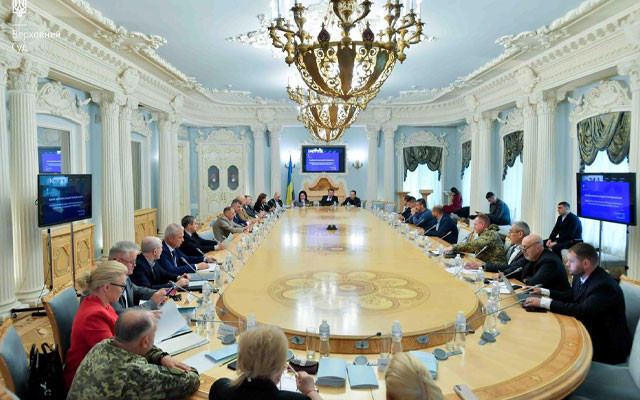
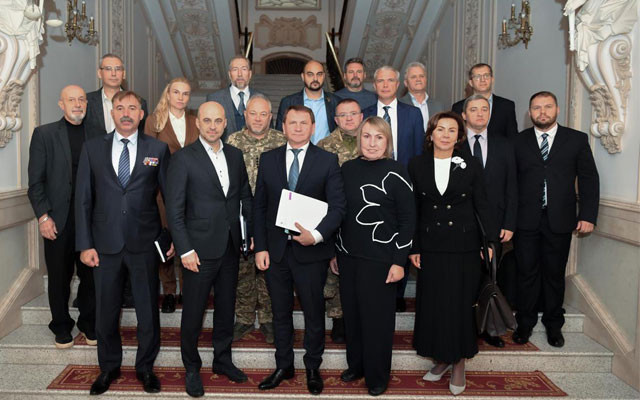
In Ukraine, it is not worth «restoring» military courts in the form in which they existed before 2010, as this contradicts the Constitution and European standards. It is necessary to create an independent model that will meet democratic standards, guarantee the independence of judges, and protect the rights of military personnel.
This opinion was expressed by the chairman of the Committee on the rule of law of the Ukrainian National Bar Association, member of the Venice Commission (2009–2013) Marina Stavniychuk during the last meeting of the working group of the Scientific advisory council at the Supreme Court.
The event, which brought together Supreme Court judges, leading Ukrainian scholars, representatives of parliament, the Office of the President, representatives of the prosecutor's office, advocacy, military authorities, and international experts, was devoted to the analysis and discussion of draft laws:
- No. 13048 of 27.02.2025 «On amendments to the law of Ukraine «On the judicial system and status of judges» regarding the functioning of military courts»;
- No. 13048-1 of 11 March 2025 «On amendments to the law of Ukraine «On the judicial system and status of judges» regarding the creation and organisation of military courts».
Both draft laws are aimed at restoring the functioning of military courts in Ukraine to ensure the high-quality administration of justice in the military sphere, effective and expeditious proceedings against military personnel for offenses committed, and judicial protection of the violated rights and legitimate interests of military personnel, their family members, and veterans.
M. Stavniychuk recalled the history of military courts. Until 2001, there was a system of military courts: garrison courts, appellate courts, and the military collegium of the Supreme Court of Ukraine. In 2001, in connection with judicial reform, the Law on the judicial system of Ukraine was adopted, which provided for the gradual elimination of military courts. In 2010, the process was completed and military courts ceased to exist as a separate system, and cases that were subject to the jurisdiction of these judges were transferred to civil courts of general jurisdiction.
«The goal of eliminating military courts in Ukraine at that time was Ukraine's desire to meet European standards of justice and harmonize the judicial system with European standards and best practices, where military courts are considered unnecessary in peacetime, - explained the chairman of the UNBA Committee. - Ultimately, Ukraine's goal was to avoid parallel justice for the military and to form a unified justice system. The Europeans' demands were strict, and we fulfilled them».
According to M. Stavniychuk, it is impossible to restore military courts in Ukraine to their original form as they existed in previous periods, based on the Constitution and European standards in the field of justice. «We must understand that all initiatives in the field of military justice will be evaluated by the Venice Commission as the main expert body of the Council of Europe and the European Union, - she warned. - Ukraine cannot ignore the best practices that exist primarily in European countries».
In this regard, the representative of advocacy cited examples of different models of military courts in Europe. For example, Italy, Greece, and Poland have a complete system of military courts with their own courts of first instance, appellate courts, and corresponding chambers in the supreme courts. They consider not only military crimes and disciplinary violations, but also serious criminal cases involving military personnel.
In other countries, such as France, Spain, and the United Kingdom, military courts operate with limited jurisdiction, are subject to civilian standards, or specialize in specific categories of cases.
The third approach is used in Germany, Lithuania, Latvia, Estonia, Sweden, Norway, Denmark, and Finland. In peacetime, all cases involving military personnel are heard by general courts, and military tribunals can only be reinstated in the event of war, as is the case in Germany and Norway.
According to M. Stavniychuk, Ukraine should not talk about restoring the old system, but about creating its own model of military courts. This could be a full-fledged structure following the example of Poland or Italy, or a mixed model similar to the British one, where military cases are heard by specialized courts, but according to the standards of general jurisdiction. She emphasized the need to develop a comprehensive concept for the creation of military courts and legislative regulation of their activities, which would guarantee effective, fair, and swift justice. The task of such a model is not only to ensure law and order in the Armed Forces, but also to comply with international standards and adequately protect the rights of military personnel and their families. «The provisions of Article 125 of the Constitution, which refers to the principles of territoriality and specialization in the formation of the judicial system, must be observed, and the independence and inviolability of judges, guaranteed by Article 126 of the Constitution and laws, must be ensured. Also, in the administration of justice, the basic principles and foundations of judicial proceedings must be observed in accordance with Article 129 of the Constitution», - the advocate explained.
In addition, M. Stavniychuk warned against the idea of granting judges exclusively military status or subordinating them to military command. Such an approach, she said, directly contradicts the standards of judicial independence guaranteed by Article 6 of the Convention for the protection of human rights and fundamental freedoms. She recalled that the European Court of Human Rights has repeatedly emphasized in its practice that a court with military status and dependence on the command cannot be considered independent and impartial.
Along with the issue of creating military courts, the representative of the UNBA outlined the need to form a broader system of military justice. This involves the creation of a military police force as the body responsible for pre-trial investigations in the military sphere, as well as a military prosecutor's office, which should be integrated into a single system of prosecution and report exclusively to the Prosecutor General of Ukraine in accordance with Article 131-1 of the Constitution. She also emphasized the need to develop an institution of free legal aid for military personnel on the basis of the Ukrainian National Bar Association and to create a fully-fledged independent legal service in the Armed Forces. «Only in this form can military justice and military law work effectively and fairly in Ukraine», - concluded M. Stavniychuk.
Popular news
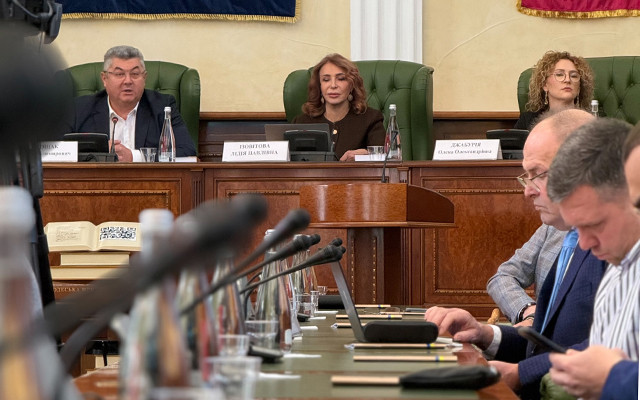
Guarantees of the practice of law
L. Izovitova: today advocacy maintains its independence and fights for guarantees for the profession
The Ukrainian advocacy remains an independent, constitutionally recognized institution of justice, which, in the conditions of war, has not only retained its subjectivity, but also consistently fights for guarantees to protect the profession.
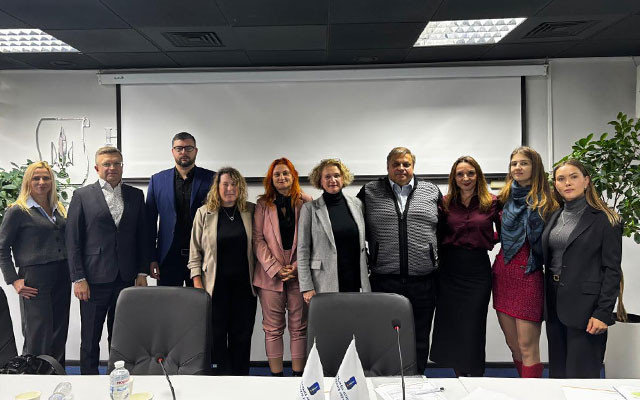
Discussion
Urban Planning Code: what should the new rules for rebuilding Ukraine be?
Does Ukraine need separate codification in the field of urban planning, which model of law to choose, and how to ensure a balance between the interests of the state, communities, businesses, and citizens in the context of post-war reconstruction?
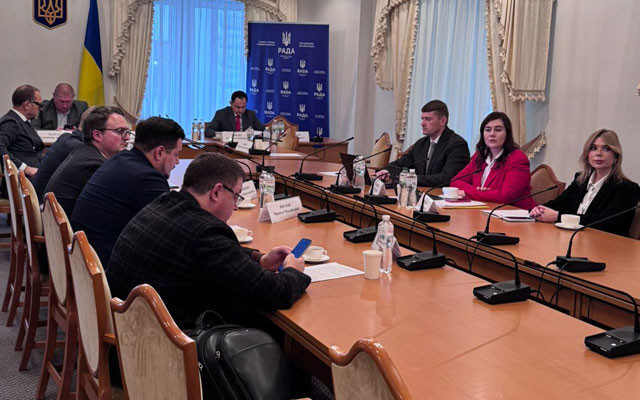
Guarantees of the practice of law
The Verkhovna Rada took another step towards ratifying the Convention on the protection of the profession of advocate
On November 5, the Verkhovna Rada held a working meeting dedicated to the translation of the Council of Europe Convention on the protection of the profession of advocate for its subsequent signing and ratification. The issue was initiated by the Ministry of Foreign Affairs, which drew attention to the key term «lawyer» in the international treaty.
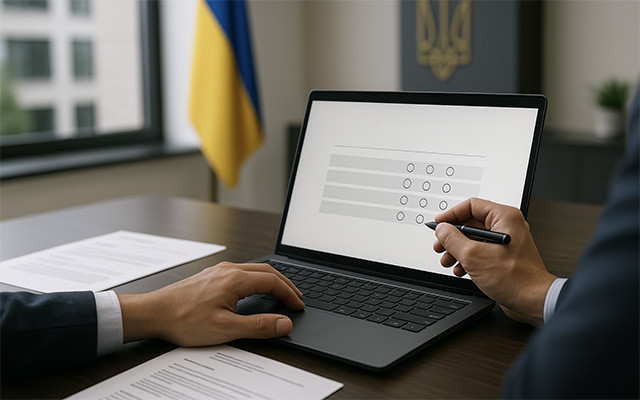
Interaction
NACB is looking for corruption risks in its activities. Advocates are asked to help
The National Anti-Corruption Bureau of Ukraine has launched a survey aimed at gathering information to identify corruption risks in the activities of the National Bureau and prepare an Anti-Corruption Program for 2026–2028.
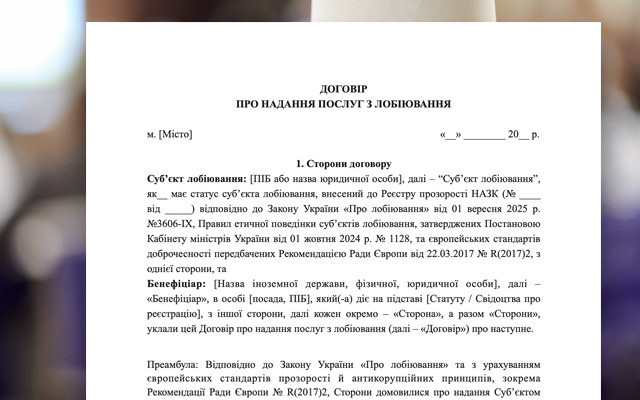
Interaction
Agreement on the provision of lobbying services: a template for advocates has been developed by the UNBA
The Ukrainian National Bar Association has prepared a model agreement for the provision of lobbying services that complies with the requirements of the relevant law and takes into account the specific features of such activities carried out by persons providing legal assistance.
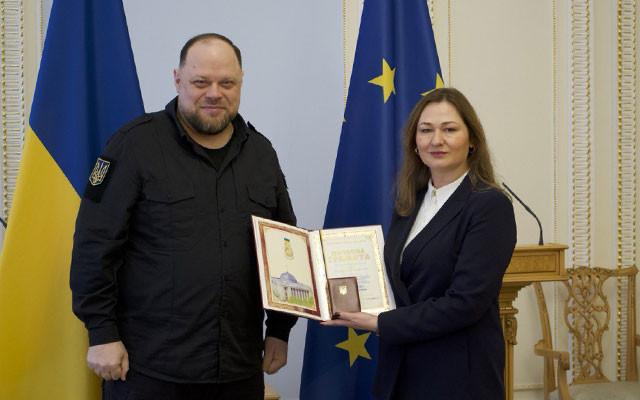
Greetings
Nana Bakayanova awarded with the Certificate of honor of the Verkhovna Rada of Ukraine
Nana Bakayanova, head of the Department of judicial, law enforcement and advocacy organizations at the Odessa Law Academy and secretary of the disciplinary chamber of the Odessa Region Qualification and Disciplinary Commission, received a Certificate of honor from the Verkhovna Rada of Ukraine.
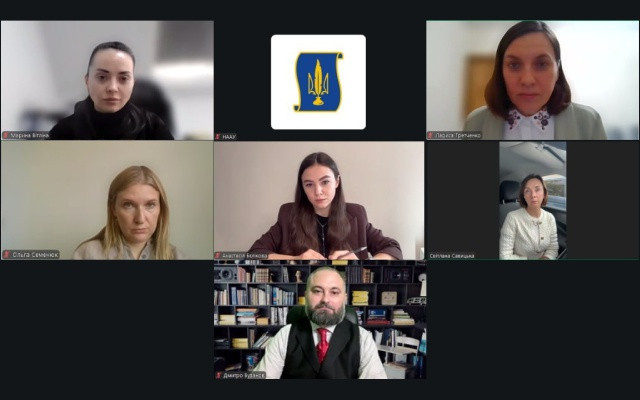
Discussion
Law and feelings: advocates explore contemporary challenges in family law
Marriage and divorce are not only legal procedures, but also social phenomena that require a responsible approach. The UNBA Committee on family law organized and held a professional discussion on the topic «Conscious» marriage and «prudent» divorce: challenges, risks, consequences».

Practice of law
BCU strengthens its position on the right of advocate to prioritize cases
In legal practice, it is not uncommon for court hearings in different cases to be scheduled at the same time. This raises the question: which case should the advocate attend first, and can the court interfere with this decision?
Publications

Censor.net Protecting advocates – protecting justice: addressing concerns about the new law

Ihor Kolesnykov A BRIEF SUMMARY REGARDING THE APPLICATION OF THE ORDER ON EXTENDED CONFISCATION IN LATVIA REGARDING FINANCIAL ASSETS OF…

Valentyn Gvozdiy WORKING IN A WAR ZONE

Lydia Izovitova Formula of perfection

Sergiy Vylkov Our judicial system is so built that courts do not trust advocates

Iryna Vasylyk Advocacy in the proclamation of Independence of Ukraine

Oleksandr DULSKY When we cross the border of the Supreme Anti-Corruption Court, we get into another department of the National Anti-Corruption…

Vadym Krasnyk The UNBA will work, and all obstacles and restrictions are only temporary inconveniences
